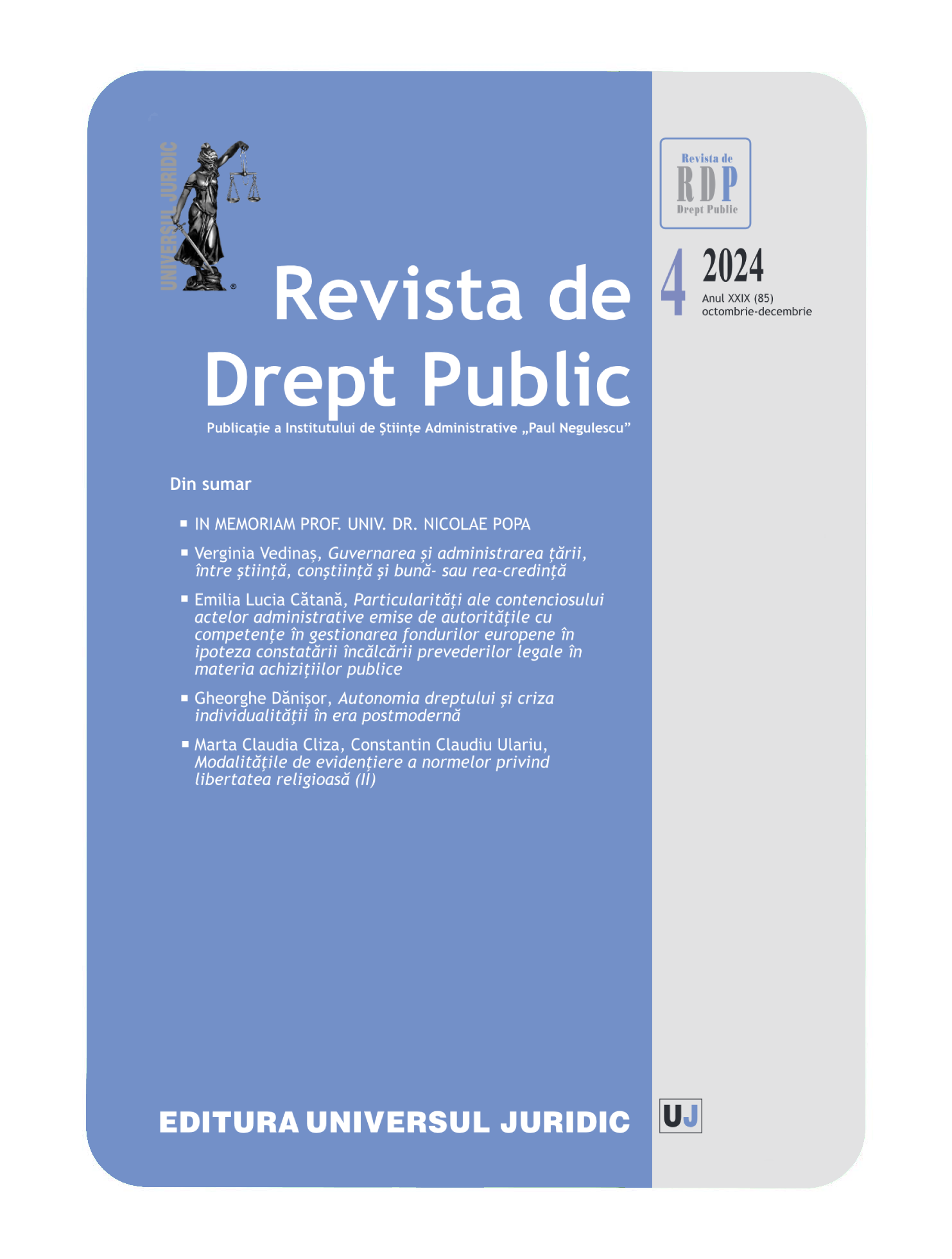Modalităţile de evidenţiere a normelor privind libertatea religioasă (II)
How to emphasise the rules on religious freedom (II)
Author(s): Marta-Claudia Cliza, Constantin-Claudiu UlariuSubject(s): Law, Constitution, Jurisprudence, Civil Law, Human Rights and Humanitarian Law
Published by: Universul Juridic
Keywords: religion; regulatory norms; values; legal system; protection; integration;
Summary/Abstract: In Europe, a continent predominantly shaped by Christian faith in its various forms of expression, through individualized denominations, a legislative framework has developed that is both eclectic and coherent, marked by the recognition of basic and fundamental values. This framework is designed to protect and encourage religious practice, providing a well defined set of shared legal concepts across the European space. These are aimed not only at guaranteeing and protecting the religious identity of different communities but also at ensuring cohesion among various religious branches and currents. Thus, religious freedom constitutes one of the essential pillars of the homogeneous legal construct known as European Union law. Several principles have been established to ensure the free and unrestricted expression of religious or non religious beliefs within Europe. These principles do not reject or limit religious identity concepts, nor do they infringe upon the autonomy of local or national communities in establishing and promoting their religious values at a societal level. On the contrary, they offer a relevant normative framework for the expression of agnostic, positivist, or atheist currents, while respecting mandatory norms and good morals. However, in the second part of our study, we will reveal that there are still many legislations worldwide that impose drastic restrictions on religious denominations that are not officially recognized. This highlights a pressing need to redefine the normative framework at the United Nations level. On the one hand, this should preserve traditional religious values, while on the other, it must ensure the predictable and rational integration of religious minorities. This integration should preserve their cultural identity while also encouraging them to accept a minimum set of democratic values regarding legal forms of religious expression.
Journal: Revista de Drept Public
- Issue Year: 2024
- Issue No: 04
- Page Range: 75-92
- Page Count: 18
- Language: Romanian
- Content File-PDF

